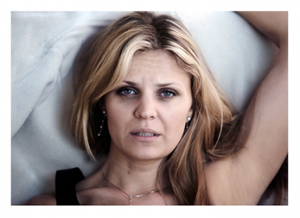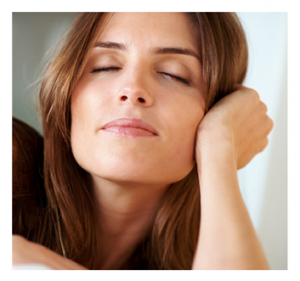“You don’t sleep enough,” he says.
“You need to go to bed earlier. A regular time every night. You need to stop working at a certain hour, and that’s it.”
I turn my head and gaze at him. If only it were so simple.
My first instinct is to roll my eyes, but he’s speaking out of concern. And besides, my sleeping habits are worse than ever and I’m way behind on my vitamin zzzzzzs. I can feel it in every muscle in my body. I’m sluggish. I can see it in the depletion of the coffee tin. Too much consumed, too fast.
And we won’t discuss my mood. Cranky. Very cranky.
Sleep is Critical to Good Health
“Remember that article last weekend?” he says.
I nod. He’s talking about a Times article on the importance of sleep and its janitorial function.
“Those hours of sleep are cleaning your brain – not just renewing the rest of your body.”
I nod again, contemplating how many times I’ve watched him nod off. He’s the only person I’ve ever met who can drink two cups of espresso and fall asleep immediately after – and stay asleep. It’s an astonishing feat (of good fortune, for him); it’s a frustrating fact – for me, to witness. I sleep little and wish it were otherwise. I would give a great deal not to be staring at the ceiling and running every task I need to work on through my head.
Sleep to clean out the toxins and lube the craggy cogs of my gray matter? I’d be thrilled. And then there’s jet lag. Or something akin to jet lag. When the body finally gives in – like last night. And it was a period of some turbulence by the look of the covers, as well as some entertainment by the vague recollections of travel dreams and visiting friends.
But I’m still tired. More tired in a way. I glance at the clock – nearly a half a day after laying my head down. I slept 10 hours. I feel as if I could sleep another eight.
After an All-Nighter? Jet Lag
The only time I get seven or eight of hours of sleep much less more is when I’m jet lagged – after an intense all-nighter of travel, then being awake most of the next day. This occasionally occurs without crossing an ocean, when a deadline feels very much like I’ve traveled a few thousand miles after the sun has set.
My son had an all-nighter earlier this week (and the jet lag after); I followed his journey online, as his flights went from city to city domestically, then internationally, until he arrived at his destination for a semester of study abroad.
I followed because I sleep little; I followed because like most mothers I want to know my children are safe; I followed because I was up and doing work. I followed because I was fighting the zzzzs – and I’m not sure why. But eventually, jet lag catches up, the body keels over, and sleep – often a dead sleep – is the result.
I haven’t traveled abroad in a few years, but I’ve journeyed long hours in the past weeks – with the holidays, my kids home then in and out, my work piling up, my usual tasks “on hand” – and a current schedule that has had me up during the night in meetings. (Yes meetings.)
Sleep Deprivation is a Cultural Contradiction
 How many of us brag about our all-nighters, or our ability to get by on five hours of sleep a night? How many of us carry our badge of sleep-deprivation as if it’s a sign of heroic effort – or something else? How many of us drag through our days exhausted, yet joke about “no rest for the weary?”
How many of us brag about our all-nighters, or our ability to get by on five hours of sleep a night? How many of us carry our badge of sleep-deprivation as if it’s a sign of heroic effort – or something else? How many of us drag through our days exhausted, yet joke about “no rest for the weary?”
Our media reminds us repeatedly that sleep-deprivation is terrible for our health, takes a massive toll on the workforce, and yet these messages are in direct conflict with our tendency to flaunt our super-charged work ethic (and hours), and dismissing the effects of our skimping on sleep.
As for me, Restless Leg Syndrome plays a part in my shortened hours. I know what improves my nights – including measured stress, healthy eating, and regular exercise. Since spraining an ankle (still not entirely healed), my walking has fallen by the wayside. This daily routine is a vital piece of the puzzle that helps me sleep; its absence (along with working in the middle of the night) has added to my body’s “sleep confusion” at the present.
How to Fall Asleep and Stay Asleep?
How to fall asleep and stay asleep?
For the good-natured worrier who keeps telling me to go to bed at the same hour, he – like one of my sons – can fall asleep at will. It’s quite a gift. But he’s right – generally, a routine can help. Likewise, a variety of sources suggest not eating before bed, exercise during the day, and a variety of other methods to calm the mind that will assist in falling asleep and staying asleep.
As for the night janitor I need for a functioning brain, all I can say is those hours of sleep last night were welcome – as were the very sweet dreams. And the grog I drank for a sore throat?
Maybe, just maybe, it played more of a role than I thought. But the grog aside, my body finally gave in. No amount of churning the checklists could keep me awake. If only it would happen more often. If only I could find a way to make sleep more routine.
You May Also Enjoy

We are opposite in my house… I scold my husband the same way. He started to drink a glass of tart cherry juice every night for the melatonin and it has helped. I am very programmed… early to bed… early to rise… I don’t know if the rest of the saying applies to me but it certainly helps me get through the day! I work out at 5AM so I have to go to bed early!!
Oh, I like the idea of the juice, Pam. (I need to try that. Thank you!) Love that you start your day at 5 am! Then you’re really benefiting from the maximum amount of light as well, aren’t you?
I used to be quite the night owl, existing on 4-5 hours of sleep a night. Not any more! I’m exhausted by 10pm and usually asleep by 11pm. But still not a morning person, even with 7 hours of sleep! I’ve come to understand sleep is vital to my overall mental and physical health. Forgoing sleep is not a badge of honor or courage. There are serious side effects to not letting your body rest and heal during those hours.
Isn’t it awful how getting sleep when you’re exhausted can make you feel MORE tired when you wake? Definitely been feeling that effect here after weeks of sleep deprivation. They also say screen time stimulates the brain circuits in ways that prevent sleep or interrupt the natural process of falling asleep — so I put down the phone/laptop after a certain hour. Not easy, I know, when work depends on long hours at the keyboard.
Yes! Then again… I’m still at my computer and still working… (Guess I woke up?) 🙂 As for screen time screwing with brain circuits, I hadn’t thought of that. Thanks, CT. I have noticed that when I take chunks of time to work on paper intermittently, it’s relieving to the eyes. (Maybe to the brain as well?)
For the majority of my adult life, I was a difficult sleeper. Much of the cause was anxiety that I didn’t manage well and would allow to consume my thoughts when I did try to lay down…so then I avoided it until I would crash. It was a bad pattern for me and affected my moods, my health and my looks.
I spent time with a therapist to learn how to manage my anxiety and in doing so also learned to sleep well. It has made so much difference in my life! I still have the occasional bout with insomnia or getting consumed with things that I cannot control, but it no longer spins into a pattern for my life. I don’t panic, keep doing what I know will be healthy (routines, notes to self, prayer) and know that it will pass – so I never get into that avoidance mode.
I need a consistent 7-8 hours of sleep daily. I can (and do) sacrifice sometimes, but if I let it go too long, I pay the consequences in mood and energy.